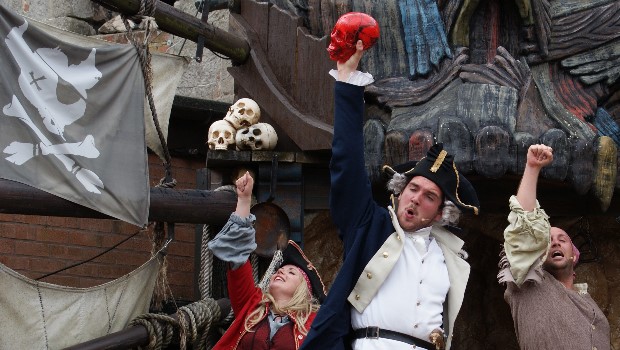
The Mutiny Act legislated for offences in respect of which death or penal servitude could be awarded. Such matters remained until 1879 when the last Mutiny Act was passed and the last Articles of War were promulgated. The Mutiny Act 1873 was passed in this manner. The Mutiny Act of 1803 effected a great constitutional change in this respect: the power of the crown to make any Articles of War became altogether statutory, and the prerogative merged in the act of Parliament. In 1715, in consequence of the rebellion, this power was created in respect of the forces in the kingdom, but apart from and in no respect affected the principle acknowledged all this time that the crown of its mere prerogative could make laws for the government of the army in foreign countries in time of war. Yet statutory power was given to the crown to make Articles of War that operated in the colonies and elsewhere beyond the seas in the same manner as those made by prerogative in times of war. Subject to this limitation, it existed for considerably more than a century after the passing of the first Mutiny Act.įrom 1689 to 1803, the Mutiny Act occasionally expired during times of peace. This power of law-making by prerogative was however held to be applicable during a state of actual war only, and attempts to exercise it in times of peace were ineffectual. Even the Parliamentary forces in the time of Charles I and Oliver Cromwell were governed not by an act of the legislature, but by articles of war similar to those issued by the king and authorized by an ordinance of the Lords and Commons exercising in that respect the sovereign prerogative. That year, the first Mutiny Act was passed and the military forces of the crown were brought under the direct control of Parliament. Except for the punishment of desertion, which was made a felony by statute in the reign of Henry VI, these ordinances or Articles of War remained almost the sole authority for enforcing discipline until 1689. The crown, by prerogative, made laws known as Articles of War for the government and discipline of the troops while thus embodied and serving. Troops were raised for a particular service and were disbanded upon the cessation of hostilities. The military law of England in early times existed, like the forces to which it applied, in a period of war only. The same definition applies in the Royal Navy and Royal Air Force. (a) to overthrow or resist lawful authority in Her Majesty's forces or any forces co-operating therewith or in any part of any of the said forces, (b) to disobey such authority in such circumstances as to make the disobedience subversive of discipline, or with the object of avoiding any duty or service against, or in connection with operations against, the enemy, or (c) to impede the performance of any duty or service in Her Majesty's forces or in any forces co-operating therewith or in any part of any of the said forces. Mutiny means a combination between two or more persons subject to service law, or between persons two at least of whom are subject to service law. Today the Army Act 1955 defines mutiny as follows: This, in turn, was replaced by the Army Act in 1881.


The Mutiny Act, altered in 1803, and the Articles of War defined the nature and punishment of mutiny until the latter were replaced by the Army Discipline and Regulation Act in 1879. In 1689, the first Mutiny Act was approved, which passed the responsibility to enforce discipline within the military to Parliament. Until 1689, mutiny was regulated in England by Articles of War instituted by the monarch and effective only in a period of war. Those convicted of mutiny often faced capital punishment. This occurred, for example, during Ferdinand Magellan's journeys around the world, resulting in the killing of one mutineer, the execution of another, and the marooning of others on Henry Hudson's Discovery, resulting in Hudson and others being set adrift in a boat and the notorious mutiny on the Bounty. Mutiny does not necessarily need to refer to a military force and can describe a political, economic, or power structure in which there is a change of power.ĭuring the Age of Discovery, mutiny particularly meant open rebellion against a ship's captain. The term is commonly used for a rebellion among members of the military against an internal force, but it can also sometimes mean any type of rebellion against any force. Mutiny is a revolt among a group of people (typically of a military, of a crew or of a crew of pirates) to oppose, change, or overthrow an organization to which they were previously loyal. The mutiny on the Bounty was one of the most famous instances of mutiny which took place at sea.


 0 kommentar(er)
0 kommentar(er)
